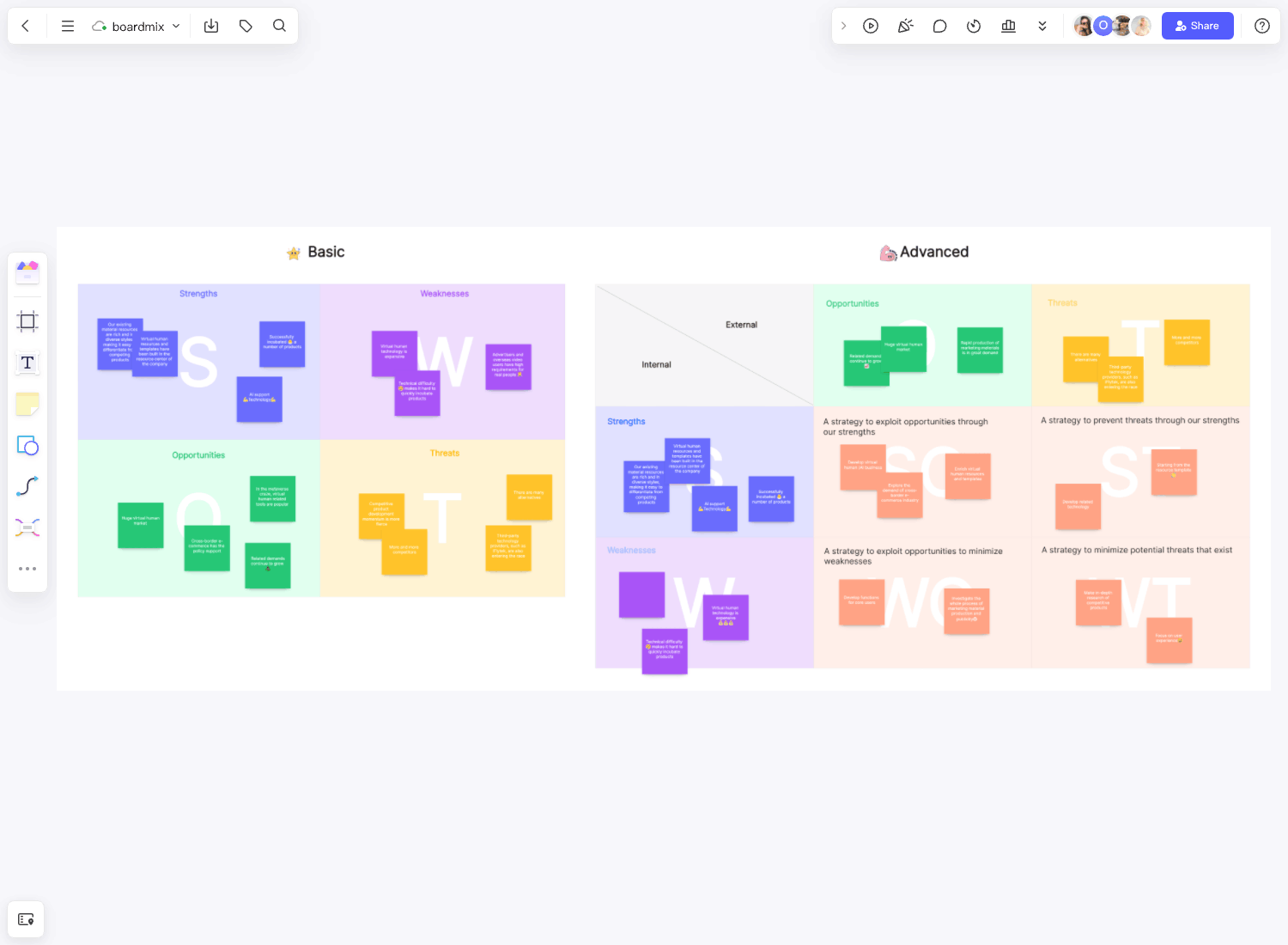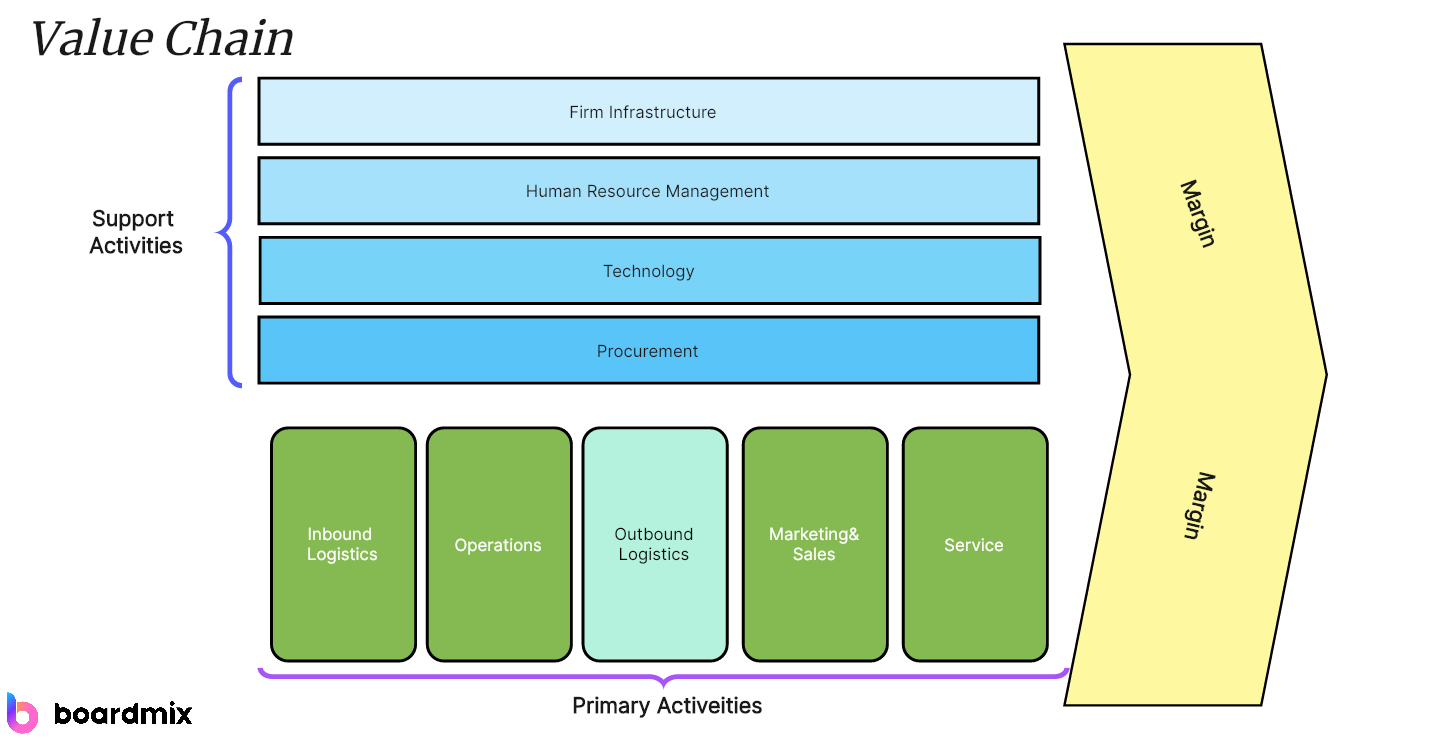Cognition Labs has made a groundbreaking announcement with the introduction of Devin, the world's first fully autonomous AI software engineer. This innovative AI tool is set to redefine the boundaries of software development and coding, offering a new dimension of efficiency and capability. In this article, we will delve into the features, performance, and potential impact of Devin on the software engineering profession, and introduce 5 more AI tools that boost productivity in different industries.
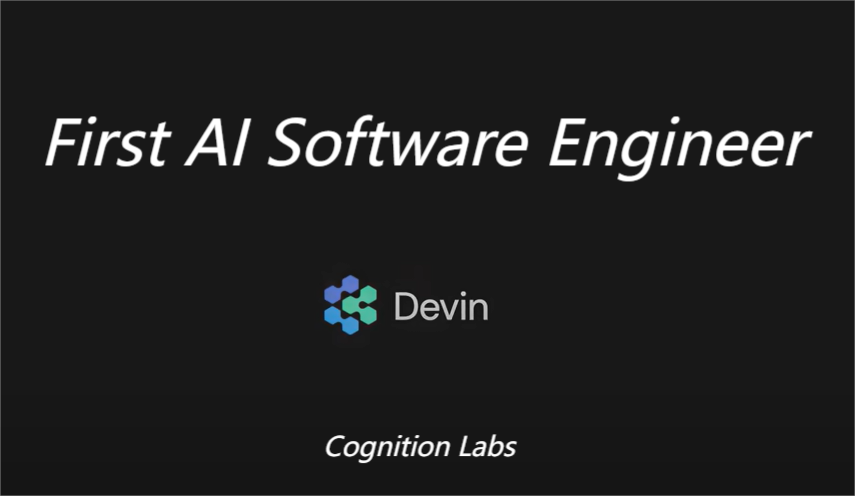
Introducing Devin: The AI Software Engineer
Cognition Labs' Devin is an AI model that has passed practical engineering interviews at AI companies and has completed real-world jobs on platforms like Upwork. Devin comes equipped with a shell, a code editor, and a browser within a sandboxed compute environment, enabling it to tackle complex engineering tasks easily.
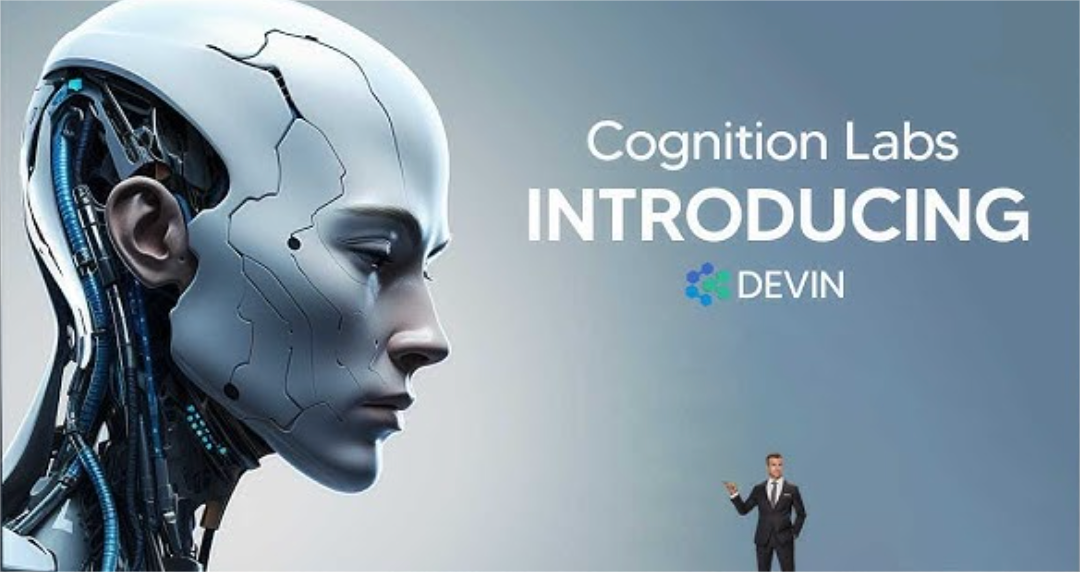
1. Devin's Capabilities: A New Era in Coding
Devin's capabilities are vast and impressive. As highlighted in a blog post by Cognition Labs and demonstrated through various video presentations, Devin can learn to use unfamiliar technologies, build and deploy applications from scratch, autonomously identify and fix bugs in codebases, and even address bugs and feature requests in open-source repositories. Moreover, Devin has the unique ability to train and fine-tune its own AI models, setting a new standard in AI-powered code generation.
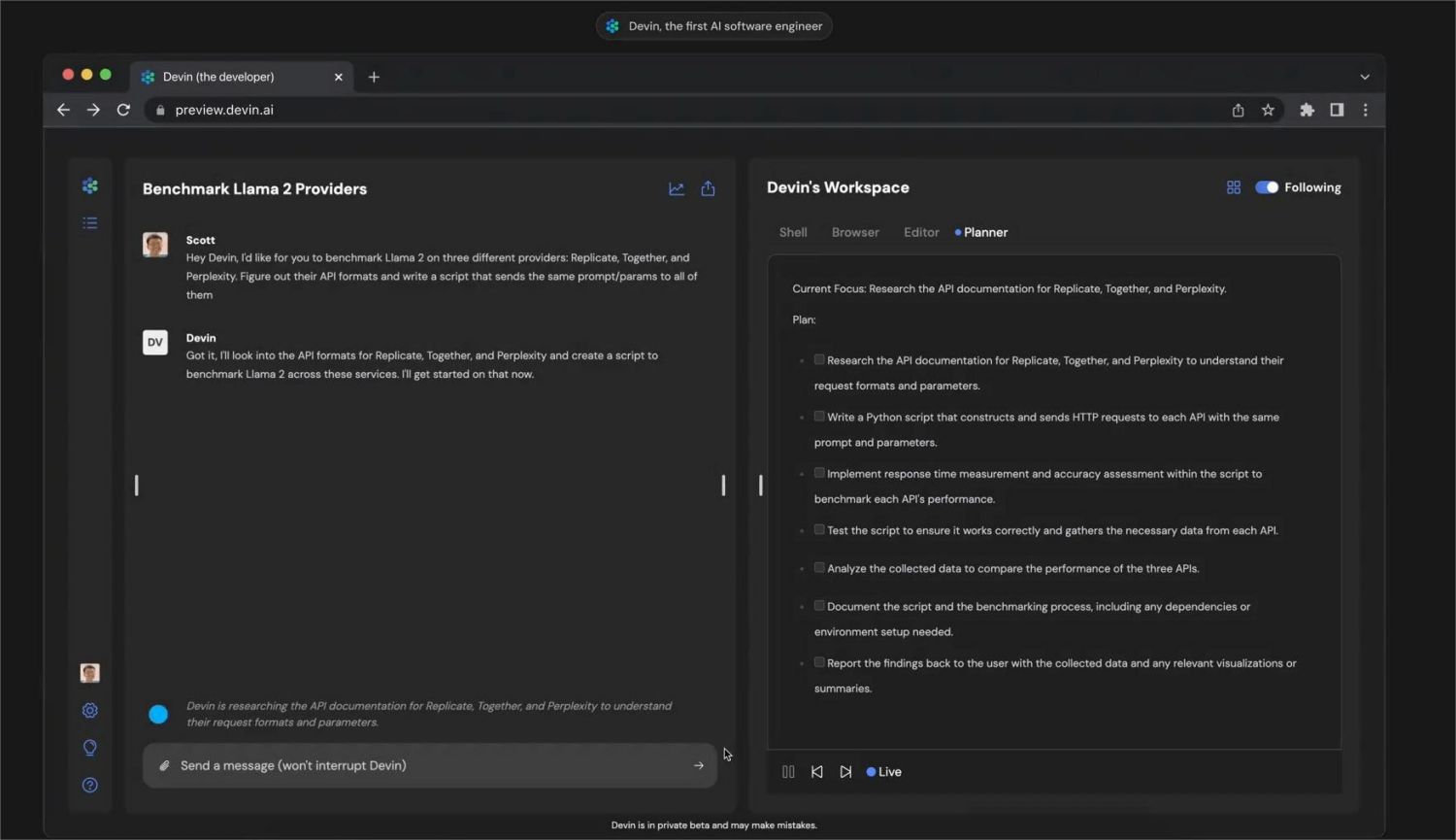
2. Cognition AI Website: A Gateway to AI Software Engineering Solutions
The Cognition AI website serves as a gateway to the latest developments and solutions in AI software engineering. It offers insights into the capabilities of Devin and other AI tools being developed by the lab. For those interested in leveraging the power of AI in their software engineering projects, the Cognition AI website is an invaluable resource.
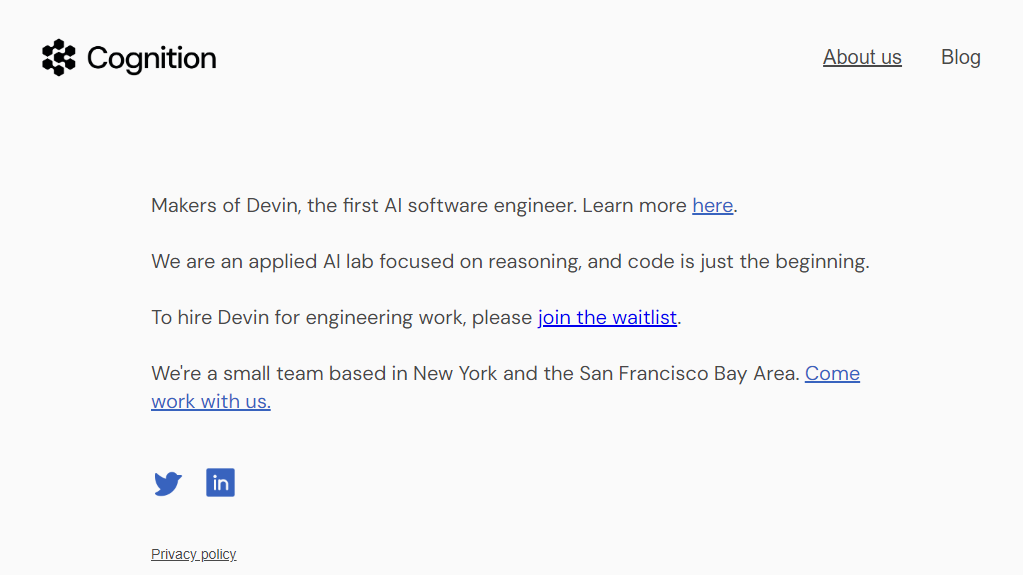
3. Scott Wu at Cognition: Driving Innovation in AI Software Engineering
Scott Wu, a key figure at Cognition AI Labs, has been instrumental in driving innovation in AI software engineering. His leadership and expertise have been crucial in the development of Devin, ensuring that the AI model not only meets but exceeds industry standards. Wu's vision for AI in software engineering is a clear indicator of the transformative potential that lies at the heart of Cognition AI Labs' mission.
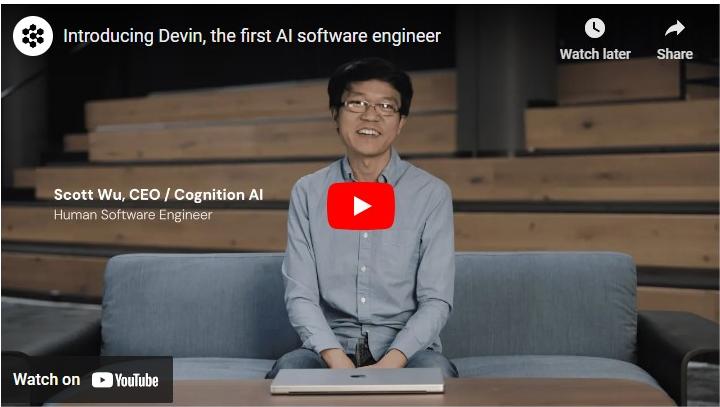
4. Devin Software AI: A Leap Forward in Coding Automation
The introduction of Devin Software AI marks a significant leap forward in the realm of coding automation. This autonomous AI software engineer is designed to handle a wide array of tasks, from learning new technologies to deploying complex applications. Devin's ability to autonomously find and fix bugs, as well as its capacity to contribute to open-source repositories, underscores its potential to revolutionize software development.

5. Devin AI Software Engineer: Redefining the Role of AI in Coding
Devin AI Software Engineer is a revolutionary platform that challenges the traditional roles of AI in coding. By demonstrating its prowess on the SWE-bench coding benchmark and completing real jobs on Upwork, Devin has proven that AI can operate at a level of sophistication previously thought unattainable. This development raises important questions about the future of software engineering and the role that AI will play in shaping it.
Cognition Lab Devin: Outshines the Competition
Devin's performance on the SWE-bench coding benchmark is nothing short of remarkable. With a success rate of 13.86%, Devin has significantly outperformed other major AI models, including Claude 2 and GPT-4. What's more, Devin achieved this feat unassisted, unlike other AI models that were given specific instructions on which files to edit.
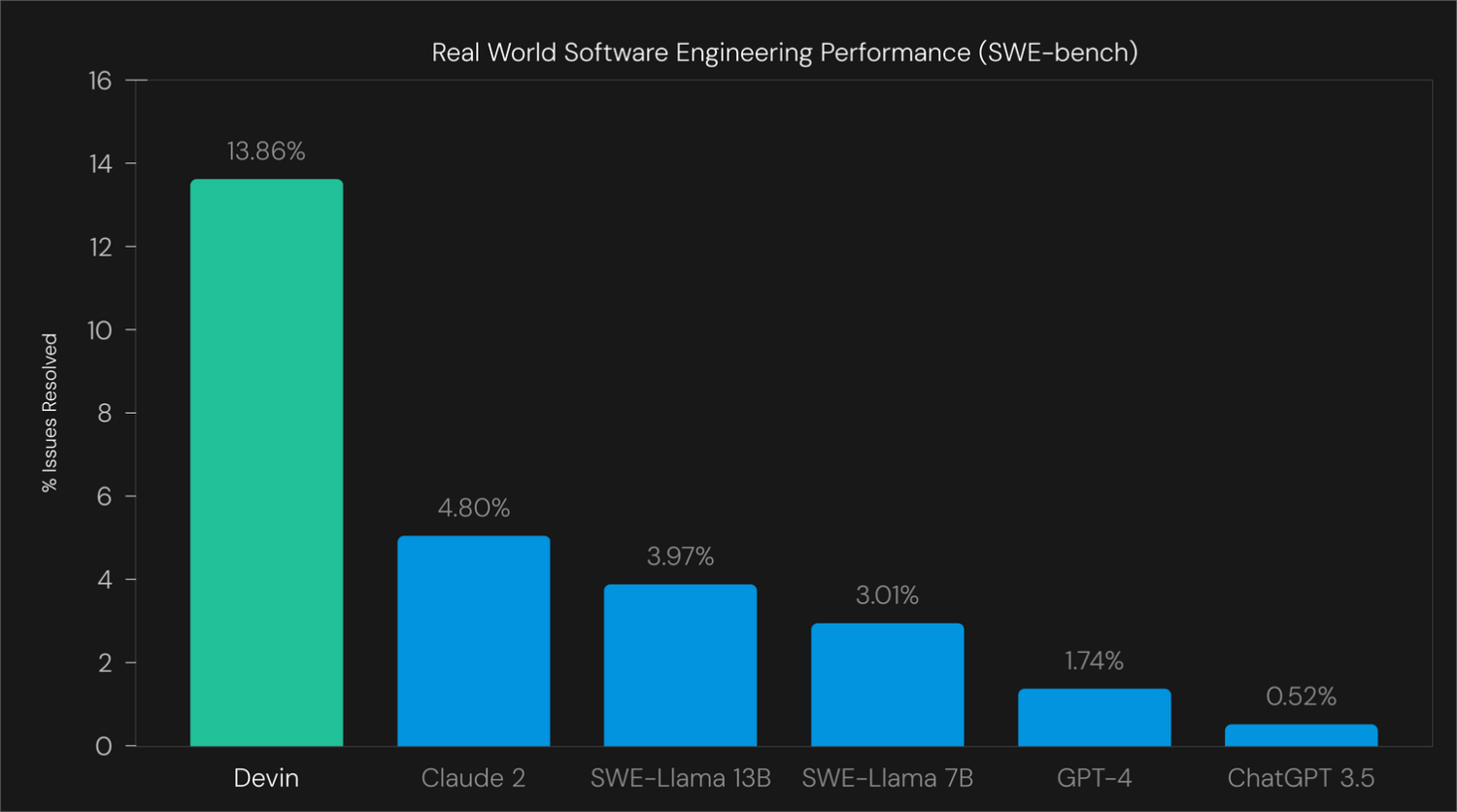
1. The Bigger Picture: AI in Software Engineering
The unveiling of Devin by Cognition Labs has sparked a debate on the future role of human software engineers. While some speculate that AI could replace human coders, others, like myself, see Devin as a powerful ally that can handle the more mundane aspects of coding, freeing up developers to focus on creative and complex problem-solving tasks.
2. Cognition AI Stock: Investing in the Future of Software Development
With the unveiling of Devin and the growing interest in AI software engineering, Cognition AI Stock has become a hot topic among investors. The potential for high returns on investment is fueled by the lab's continuous innovation and the increasing demand for AI solutions in the software development industry. As Cognition AI Labs continues to make strides in AI technology, investors are keen to be part of this exciting journey.
3. The Future of Coding with Devin
As Devin is currently in early access, Cognition Labs has invited interested parties to reach out for engineering work. With the backing of significant investment from reputable sources, including Founders Fund, Devin is poised to transform the software engineering landscape.
Cognition AI Labs has established itself as a pioneer in the AI industry, consistently pushing the envelope with innovative solutions that blend cutting-edge technology with practical applications. The lab's latest creation, Devin, is a testament to their commitment to advancing the field of artificial intelligence.
Cognition Labs' Devin is a harbinger of change in the software development industry. As we witness the rise of autonomous AI software engineers, the future of coding is bound to be more efficient, innovative, and exciting. Stay tuned for more updates on Devin as Cognition Labs continues to push the boundaries of AI in software engineering.
Other 5 AI Tools That Disrupt Industries
In addition to Cognition Labs' Devin, several other AI tools are making waves across various industries, showcasing the versatility and potential of artificial intelligence to transform traditional workflows and enhance productivity. Here are five notable AI tools that are disrupting their respective fields.
1. Boardmix Whiteboard AI: Enhancing Collaborative Visualization
Usage:
Boardmix Whiteboard AI is an intelligent online whiteboarding tool that enables real-time collaboration on visual projects. It's widely used in remote teams for brainstorming sessions, designing workflows, and creating educational content.
Performance Characteristics:
- Offers AI-powered features like smart shapes and automatic diagram layouts.
- Supports integration with other productivity tools for seamless project management.
- Generates a variety of contents in different like mind maps, flowcharts, presentations, images, codes, and other business diagrams.
- Provides a user-friendly interface that adapts to various skill levels, making it accessible to a broad audience.
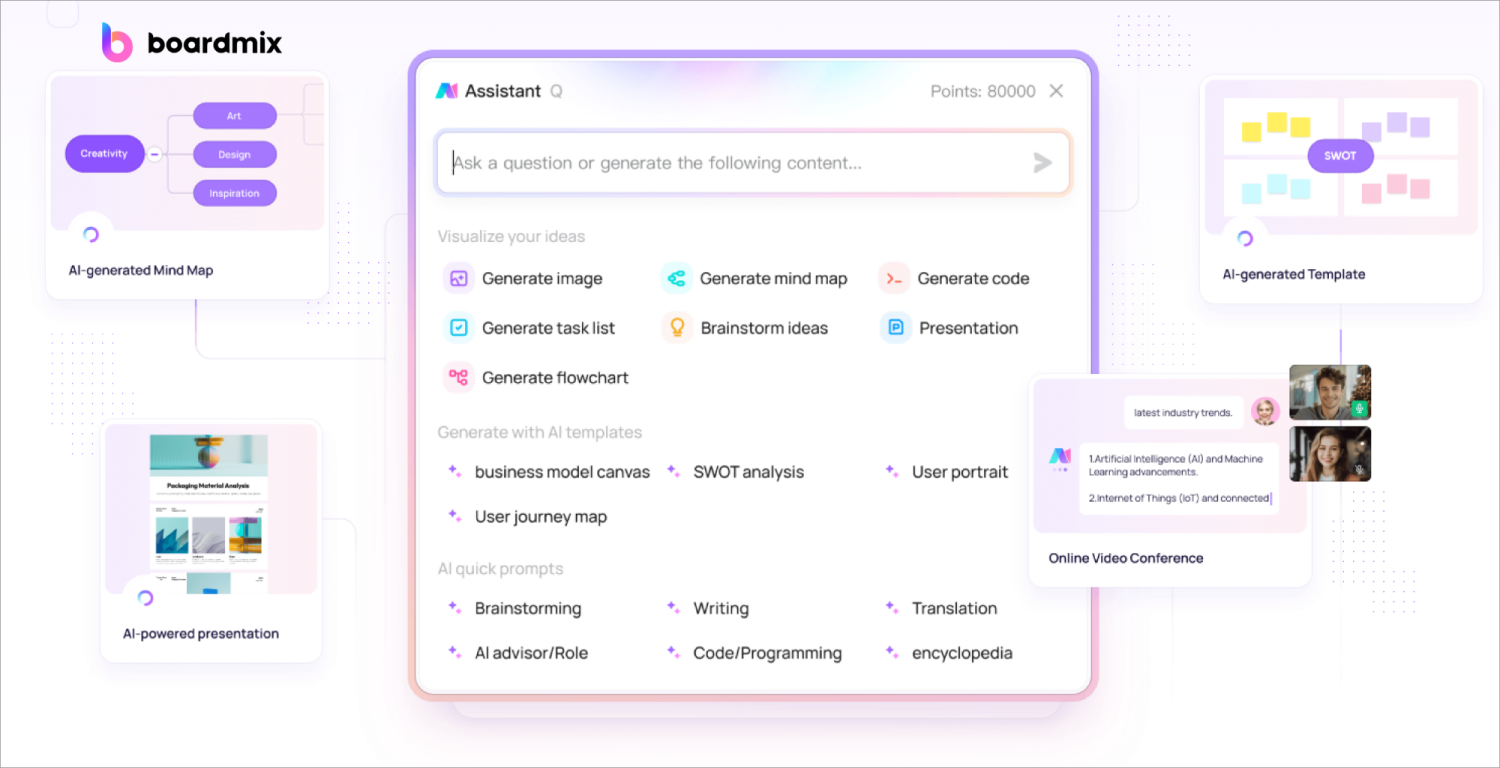
2. GitHub Copilot: AI-Driven Code Assistance
Usage:
GitHub Copilot is an AI code assistant that writes code suggestions and autocompletes code snippets based on the context provided by the developer. It's used by software engineers to accelerate the coding process and to assist in learning new programming languages.
Performance Characteristics:
- Continuously learns from a vast dataset of open-source code to generate suggestions.
- Adapts to the coding style of the user, providing personalized code completions.
- Facilitates faster development by reducing the time spent on writing repetitive code.
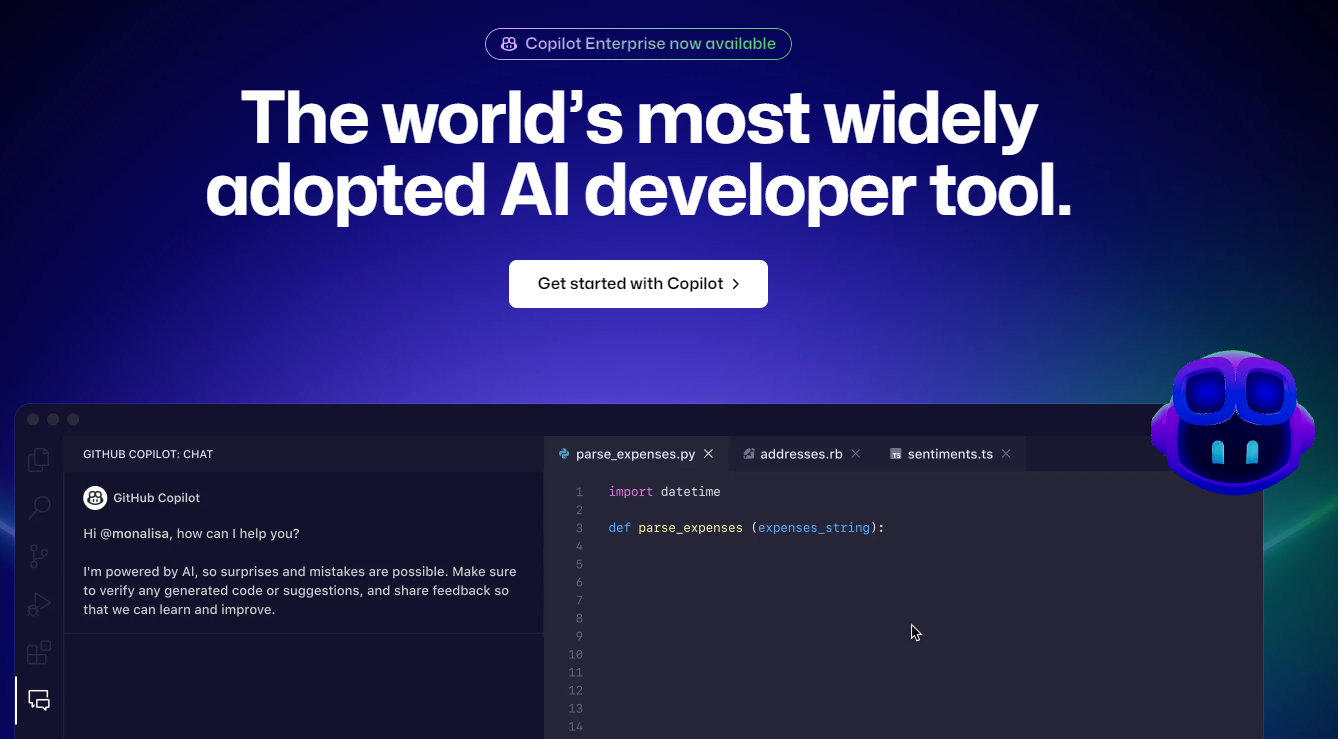
3. DeepL Translator: Advanced Machine Translation
Usage:
DeepL Translator is an AI-powered language translation tool that provides high-quality translations across multiple languages. Businesses, researchers, and individuals utilize it for cross-language communication and content localization.
Performance Characteristics:
- Known for its accuracy and fluency in translations, often surpassing traditional translation services.
- Offers context-aware translation to better capture nuances in language.
- Supports document translation, preserving the original layout in the translated output.
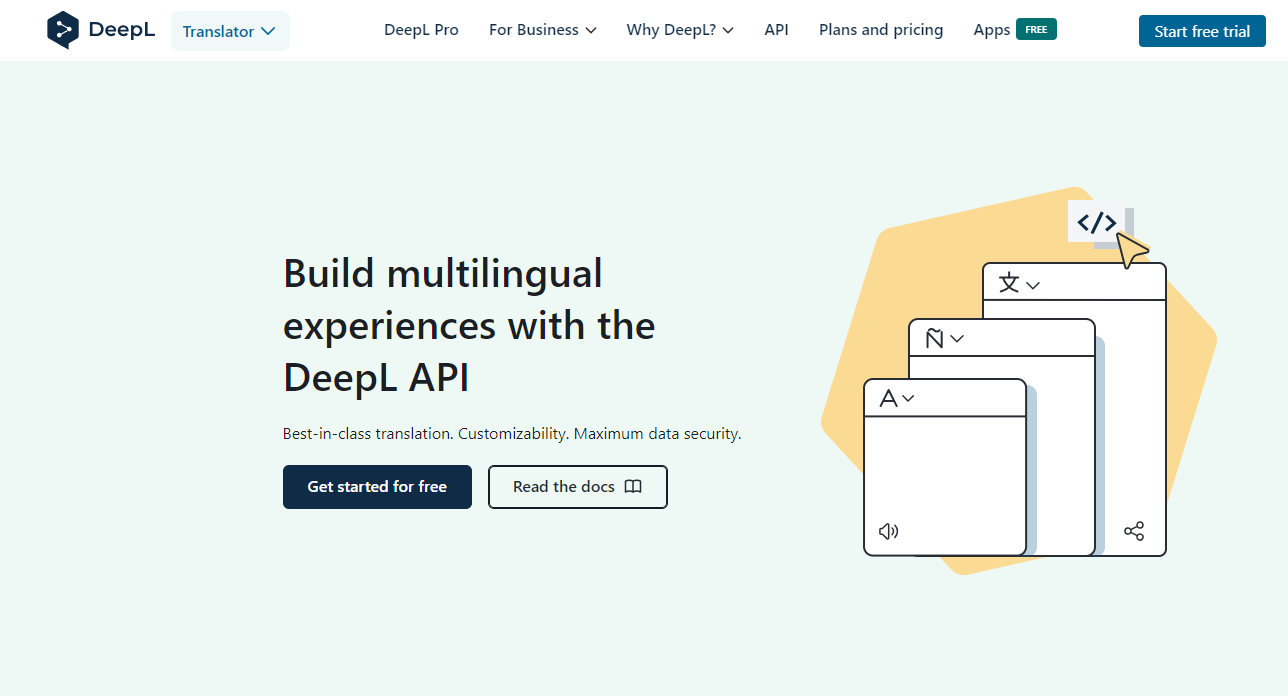
4. OpenAI's GPT-4: General-Purpose AI Model
Usage:
GPT-4 is a versatile AI model capable of generating human-like text for a variety of applications, including content creation, chatbots, and language understanding tasks.
Performance Characteristics:
- Possesses a vast knowledge base and can generate coherent, contextually relevant text.
- Can be fine-tuned for specific tasks, providing tailored solutions for different industries.
- Offers a high level of flexibility and adaptability in text generation.

5. IBM Watson: AI for Business Solutions
Usage:
IBM Watson is an AI platform that provides a suite of tools for businesses to analyze data, understand natural language, and make informed decisions. It's applied in fields like healthcare, finance, and customer service.
Performance Characteristics:
- Combines powerful analytics with machine learning to derive insights from large datasets.
- Offers natural language processing capabilities for understanding and responding to user queries.
- Enables the creation of AI-infused applications and services with its robust API offerings.
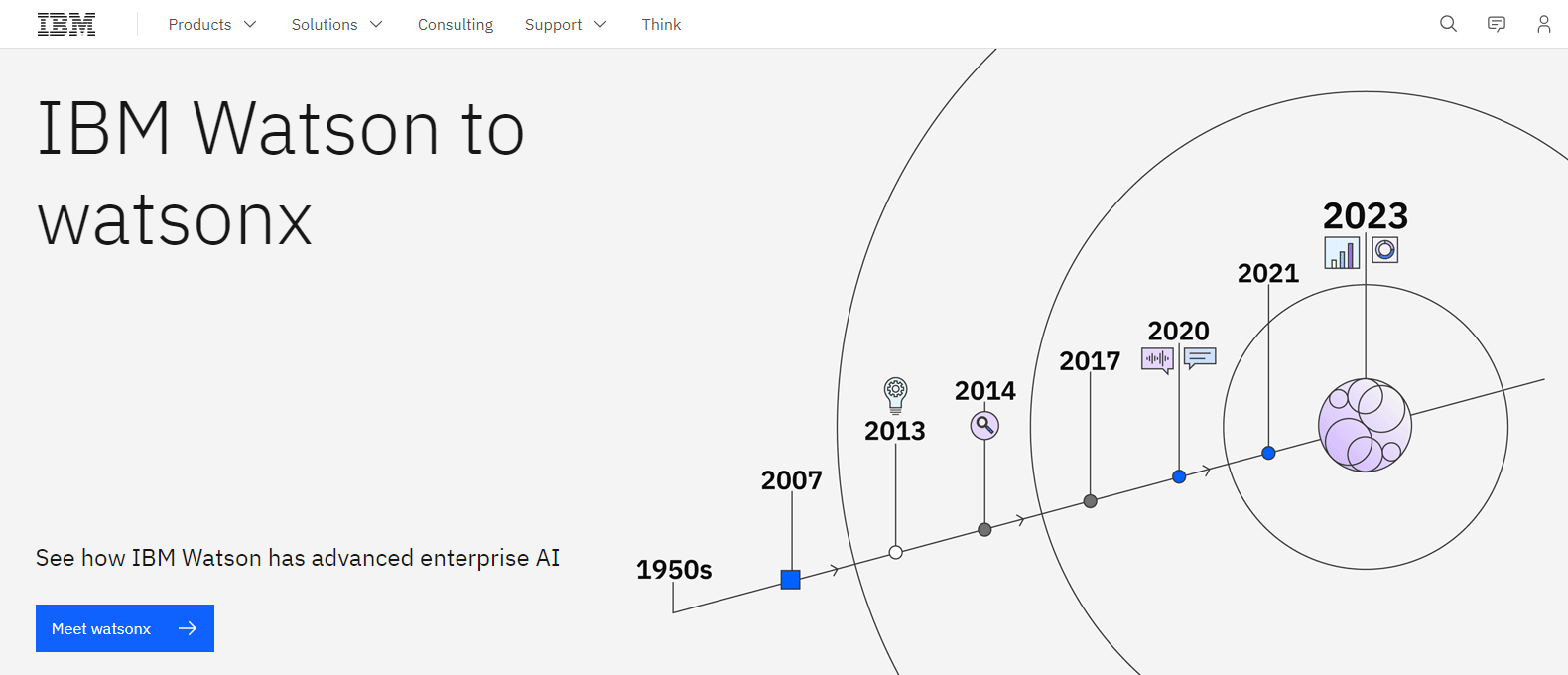
These AI online tools represent a snapshot of the diverse applications of artificial intelligence across different sectors. Each tool showcases the unique capabilities of AI, from enhancing collaboration and productivity to providing sophisticated language translation and data analysis. As the technology continues to evolve, the impact of AI tools on various industries is expected to grow, driving innovation and efficiency like never before.











